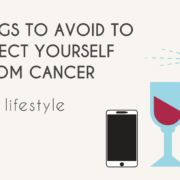Sleep Yourself to Optimum Health, a Better Body and Mind
We all think we can push ourselves and deprive ourselves from getting sleep in order to get more done, but the truth is that the biological consequences of losing sleep are simply not worth it. Many vital processes happen during sleep and we must make getting daily restorative sleep part of our lifestyle. This simple lifestyle hack can change the quality of our physique, relationships, performance and health. During sleep, is when we get enhanced physically, emotionally and mentally.
Sleep provides an opportunity for the body to repair and rejuvenate itself. When animals are deprived entirely of sleep, they lose all immune function and die in just a matter of weeks. Many of the major restorative functions in the body like muscle growth, tissue repair, protein synthesis, and growth hormone release occur mostly, or in some cases only, during sleep.
Sleep Impacts Body Shape More Than Diet and Exercise
Consider that sleep impacts our physique and body shape more so than diet and exercise combined. Hard to believe right? Here’s how that works. During sleep the body secretes most of our human growth hormone (HGH) and HGH helps to maintain lean body mass (muscle). Muscle is our bodies’ fat burning machinery.
In contrast, sleep deprivation increases cortisol which allows cortisol levels to become unbalanced. Cortisol has the unique ability to break down lean body tissue and turn it into glucose (fuel for the body). Glucose turns on insulin, which essentially will store this glucose as fat if there is no expenditure of this extra fuel.
During sleep we produce the sleep hormone melatonin and melatonin increases brown adipose tissue (good fat). Brown adipose tissue behaves more like muscle than fat, as it also burns white adipose tissue (the fat we don’t want) the same as muscle does.
Research shows that just one night of sleep deprivation reduces the body’s leptin levels. Leptin is the body’s satiety hormone that helps to regulate the body’s normal hunger-satiety cycle. In addition one night of sleep deprivation increases the hunger hormone, grehlin. Let’s not think we can stick to a healthy eating regime if we’re swimming upstream by depriving ourselves of sleep. Willpower is seldom stronger than the basic biological functions of the body.
Sleep Detoxes The Brain
The brain detoxifies while we sleep. Like the body has the lymphatic system for cell waste management, the brain has the glymphatic system, which is 10x more effective while we’re sleeping. When we sleep, our bodies focus on detoxifying our brains, it actually shrinks our brain cells by 60% to create more room for detoxification. This explains why not sleeping often feels like walking around drunk, because the brain didn’t get a chance to detoxify the previous night. New research links memory loss and Alzheimer’s to an inability of the brain to detoxify itself.
We Secrete The Most Powerful Anti-Cancer Hormone When We Sleep
The World Health Organization has labeled night shift work as a class 2 carcinogen, because night shift work disrupts the production of melatonin which is possibly the most potent anti-cancer hormone the body makes.
What does melatonin do?
- Melatonin maintains the body’s sleep cycles through our circadian rhythm (24 hour internal clock).
- It’s a powerful antioxidant acting as a free radical scavenger and has the ability to control pro-inflammatory molecules by:
- Enhancing the activities of a variety of antioxidative enzymes.
- Stimulating the synthesis of another important intracellular antioxidant, glutathione.
- Reducing oxidative stress by effectively reducing electron leakage from the mitochondria electron transport chain.
- Having synergistic interactions with other antioxidants.
- It’s ability to generate byproducts when it scavenges free radicals and related reactants, that are also free radical scavengers thereby greatly exaggerating the antioxidant potential of melatonin.
- Strengthens the immune system, because of its antioxidant capabilities, and effect on the GI tract. Melatonin is secreted along with another hormone called prolactin. Together these hormones produce an immune reaction in the gut that targets viruses, pathogenic bacteria and man-made toxins to restore a healthy flora balance. Melatonin also promotes T-cell and Natural Killer cell production; two important cells of our immune system.
- Melatonin helps control the timing and release of female reproductive hormones. It helps determine when a woman starts to menstruate, the frequency and duration of menstrual cycles, and when a woman stops menstruating (menopause).
- In cancer therapy, melatonin counteracts chemotherapy toxicity, by acting as an anti-oxidant agent, and promotes apoptosis (programmed cell death) of cancer cells, thus enhancing the toxicity of chemotherapy.
The secretion of melatonin by the pineal gland progressively declines by age. Strong reductions of circulating melatonin are also observed in numerous disorders and diseases, including Alzheimer’s disease, various other neurological conditions, pain, cardiovascular diseases, cases of cancer, endocrine and metabolic disorders, in particular diabetes type 2.
It is commonly understood that melatonin is produced by the pineal gland in the brain, however, new research shows that we have up to 400x more melatonin in our guts and that bacteria in the gut are communicating with the cells that produce sleep related hormones. A healthy microbiome is essential for so many bodily functions including good sleep and adequate melatonin production which as you have seen is imperative for immune function and getting rid of free radicals.
Getting Restorative Sleep Keeps Us Focused on the Positive Side of Life
Not getting enough sleep, promotes emotional instability. Brain imaging scans show increased activity in the amygdala of sleep deprived subjects and decreased activity in the prefrontal and insular cortex. The amygdala is the primitive, survival part of the brain that only cares about the survival of self. While the prefrontal and insular cortex is responsible for decision making, distinguishing between right and wrong and social control. This effect was demonstrated in a study by exposing people to stimuli (images) and measuring their responses. Sleep deprived subjects were 60% more reactive to negative stimuli. Furthermore, it was much harder to bring the sleep deprived subjects brains back to a normal (not so negative) state. When we don’t get enough sleep, we’ll overreact and pay more attention to the negative than when we’re well rested. When we’re sleep deprived we show up in life and come into situations as not the best version of ourselves. This clearly shows how sleep impacts our relationships, mood and outlook in life.
We Excrete Many Important Hormones When We Sleep
Sleep plays a major role in neuroendocrine function. Neuroendocrine cells release hormones that act like neurotransmitters that regulate specific body functions like metabolism, growth and reproduction.
Human Growth Hormone (HGH) is mostly released during sleep and stimulates the growth of bone and tissue.
Luteinizing hormone and follicle stimulating hormone, both involved in reproduction are released during sleep. The sleep-dependent release of luteinizing hormone initiates puberty.
Melatonin, we already mentioned, coupled with a healthy microbiome is absolutely vital for immune function and cancer protection.
Studies show that sleep restriction affects glucose metabolism by causing metabolic and endocrine alterations, including decreased glucose tolerance, decreased insulin sensitivity, increased evening concentrations of cortisol, increased levels of ghrelin, decreased levels of leptin and increased hunger and appetite.
Our Brains Are Powered By Sleep
Sleep research has come a long way in the last decade with advanced brain imaging technology that’s become available to sleep researchers. If we want a fast learning, clear thinking, good concentrating and calm brain, we’ve got to get good quality sleep as our brains are powered by sleep more than anything else. It’s during sleep that our bodies take all the information that we were exposed to and assimilated during the day and converts this data to our short term memory, specifically during REM sleep. Long term memories are formed by moving information stored in the short term memory the previous day to the long term memory and myelination happens mostly during sleep as well where the fat or insulation is laid down on the neuropathways which integrates all these new experiences in the brain. This is known as the brain plasticity theory where changes in the structure and organization of the brain takes place while we sleep. This theory is demonstrated in the effect that sleep and sleep deprivation have on people’s ability to learn and perform a variety of tasks. Sleep helps us master various skills, as our brains review and consolidate all the streams of information gathered while awake.
Sleep Refuels the Brain
One of the reasons we feel refreshed and alert when we wake up is that while we’re awake, neurons in the brain produce adenosine, a by-product of the cells’ activities. The build-up of adenosine in the brain is thought to be one factor that leads to our perception of being tired. Caffeine has the ability to block the actions of adenosine in the brain for a short period, which explains why caffeine helps to keep us alert. Researchers think that this build-up of adenosine during wakefulness may promote the drive to sleep. As long as we’re awake, adenosine accumulates and remains high. During sleep, the body has a chance to clear adenosine from the system, and, as a result, we feel more alert when we wake.
As we can see making quality, restorative sleep essential to our daily lifestyle can change our relationships, health and bodies in profound ways. If you’re sleep deprived or have difficulty sleeping, we encourage you to get help today.
If you have Insomnia, you can read about the condition and treatment in the Insomnia section. And this article provides tips for getting a good nights sleep.
TIP: Remove Troublesome Light Spectrum from Your Devices
Harvard researchers have found that our devices and computers diminish our sleep quality by suppressing melatonin production at night. Melatonin production is stimulated by night fall when light diminishes. The most troublesome light spectrum that come from our devices is the blue light spectrum. It suppresses melatonin twice as much as green light and disrupt circadian timing twice as much. Red light is the least impactful on the circadian rhythms and this corresponds with our evolutionary track of fires at night that are mostly red, orange and yellow light spectrums.
F.Lux is software that automatically pulls the most troublesome spectrum of light from your computer monitor or laptop screen when it gets dark, based on its settings. Once you’ve set it, it will automatically do it’s thing in the background and you can forget about it. https://justgetflux.com/ – Just Get Flux – F.Lux software to make your life better.Desktop or Laptop
If you have the latest IOS software for your iphone/ipad, Apple has a new tool called night shift. You can find this setting on the toolbar when you swipe up, where you find the flashlight and calculator. Activate nightshift and it will automatically pull the most troublesome spectrum of light from your phone at night.Ios IPhone or IPad









